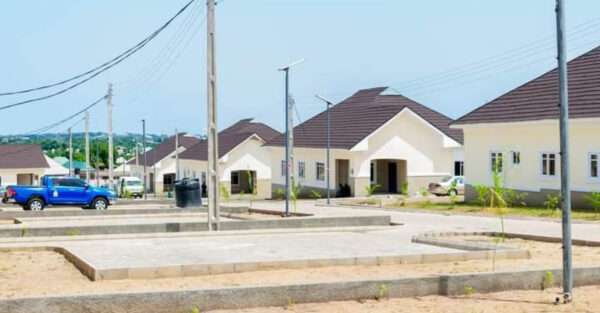Residents of the Federal Capital Territory (FCT) are grappling with a sharp rise in rent, which has now reached an all-time high, leaving many families with tough decisions regarding housing.
According to findings by our source, the cost of renting in the FCT has surged dramatically. A self-contained room now goes for as much as N1 million, while one-bedroom apartments range between N1.5 million and N2 million, depending on the location within the city center.
This spike in rent is attributed to rising inflation and the increasing cost of building materials, which has led many landlords to raise rents arbitrarily.
As a result, numerous households have been forced to relocate to satellite towns within the FCT, where rents remain more affordable.

Mahmood Attahiru, a civil servant and tenant in Apo resettlement, expressed frustration over the significant rent hike he experienced. “I moved into a one-bedroom flat in January 2022, paying N700,000 annually. By January 2025, my rent has surged to N1.5 million—a more than 100% increase,” he said, lamenting the difficulty of finding affordable housing.
Similarly, Favour Bala, a tenant in Wuye District, shared her experience: “A self-contained room now costs N1 million, while one-bedroom apartments are priced as high as N2.5 million. The completion of the Wuse-Wuye flyover led to these steep rent hikes.”
Kenneth Omotosho, a Gwarinpa tenant, revealed that after his rent increased from N1.2 million to N2.5 million, he plans to relocate to Nasarawa or Niger state in search of more affordable options.
Martha Daniel, another tenant in Jahi District, noted her rent was raised from N1 million to N1.8 million, despite being less than a year in the property.

Landlords, however, argue that the rising rents are a direct result of the skyrocketing cost of construction and maintenance.
Chief Ignatius Kalu, a landlord in Kado, explained that the cost of building materials has more than doubled in recent months, making it difficult to maintain existing properties. “Materials for construction and maintenance are no longer affordable,” he said.
Another landlord, Jafaru Bello from Kubwa Phase 4, blamed the government for the situation, citing the soaring costs of essential building materials like cement, sand, and plumbing supplies.
Real estate experts also weighed in on the situation. Mr. Aliyu Wamakko, the immediate-past national president of the Real Estate Developers Association of Nigeria (REDAN), pointed to the rising cost of imported building materials and the challenges posed by exchange rate fluctuations. He stressed that these factors have made affordable housing and rental prices increasingly difficult to achieve.
Barr. Festus Adebayo, Executive Director of the Housing Development Advocacy Network, highlighted the lack of regulatory laws governing rents in the FCT. He noted that without such laws, the surge in rents is unlikely to abate anytime soon.




